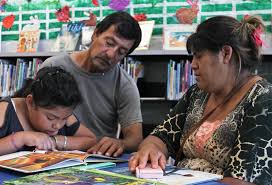The International Day of Peace, established in 1981 by the United Nations General Assembly, is now celebrated worldwide every September 21.
 To commemorate the message of the day, I’ve chosen to shine a light on a few middle-grade books that share themes of nonviolence, empathy, and dignity for all.
To commemorate the message of the day, I’ve chosen to shine a light on a few middle-grade books that share themes of nonviolence, empathy, and dignity for all.
These books not only promote peace by highlighting the challenges of fighting against war, racism, poverty, etc., but they also underscore the importance of large and small acts of courage by individuals to create change and move toward a more harmonious world.
This is by no means an exhaustive list, and I’d love to hear about your favorite books on the subject in the comments section.
 Pax by Sara Pennypacker, illustrated by Jon Klassen
Pax by Sara Pennypacker, illustrated by Jon Klassen
Pennypacker’s novel, Pax (literally “peace” in Latin) was recently longlisted for the 2016 National Book Award for Young People’s literature. The story highlights peace by portraying the costs of war through the eyes of a boy and his beloved fox, Pax. Time magazine writes: “Pennypacker’s elegant language and insight into human nature spin a fable extolling empathy above all. By the novel’s poignant ending, Pennypacker has gently made the case that all of us should aspire to that view—children and adults alike.”
 Nine, Ten: A September 11 Story by Nora Raleigh Baskin
Nine, Ten: A September 11 Story by Nora Raleigh Baskin
Baskin’s novel tracks the stories of four children of different backgrounds before and after the tragedy of 9/11. While the characters have their own individual stories, they all share the fact that their lives were impacted by the event. The ending (spoiler alert) shows the characters, one year after the tragedy, at the memorial service in New York City. It’s a powerful scene demonstrating the courage of coming together in love and peace. Publishers Weekly writes: “Baskin focuses on how her characters emerge wiser, worldlier, and more sensitive to others’ pain after surviving a profound and tragic piece of history.”
 Just a Drop of Water by Kerry O’Malley Cerra
Just a Drop of Water by Kerry O’Malley Cerra
In Cerra’s book, also about 9/11, Jake’s life is turned upside down when the father of his best friend Sam is detained by the FBI after the attacks. Jake’s mom doubts the innocence of Sam’s family, who is Muslim, forcing Jake to choose between his best friend and his parents. When Jake finds out that Sam’s been keeping secrets, too, he doesn’t know who his allies are anymore. In the end, Jake must decide: walk away from Sam and the revenge that a racist classmate has planned or become the hero he’s always aspired to be.
 Sugar by Jewell Parker Rhodes
Sugar by Jewell Parker Rhodes
Ten-year-old Sugar lives on the River Road sugar plantation along the banks of the Mississippi. Slavery is over, but laboring in the fields all day doesn’t make her feel very free. Thankfully, Sugar has a knack for finding her own fun, especially when she joins forces with forbidden friend Billy, the white plantation owner’s son. When Chinese workers are brought in to help harvest the cane, the older River Road folks feel threatened. But as Sugar befriends young Beau and elder Master Liu, they introduce her to the traditions of their culture, and she, in turn, shares the ways of plantation life. Sugar soon realizes that she must be the one to bridge the cultural gap and bring the community together.
 The Breadwinner Trilogy by Deborah Ellis
The Breadwinner Trilogy by Deborah Ellis
This volume contains Ellis’s three novels, The Breadwinner, Parvana’s Journey, and Mud City. The Breadwinner is set in Afghanistan, where 11-year-old Parvana lives with her family in a bombed-out apartment building in Kabul. When her father is arrested for the crime of having a foreign education, the family is left with no money or resources. Forbidden to earn money as a girl, Parvana must transform herself into a boy and become the breadwinner. In Parvana’s Journey, her father has died and the family has scattered. Parvana, now 13 years old, is determined to find them. Again masquerading as a boy, she joins a group of wandering children, all refugees from war, who exist mainly on courage. In Mud City, the focus shifts to 14-year-old Shauzia, who lives in the Widows’ Compound in Pakistan and dreams of escaping to a new life in France. Ellis’s look at the human cost of war is also a story of hope and survival.
 Number the Stars by Lois Lowry
Number the Stars by Lois Lowry
As the German troops begin their campaign to “relocate” all the Jews of Denmark, Annemarie Johansen’s family takes in Annemarie’s best friend, Ellen Rosen, and conceals her as part of the family. Through the eyes of ten-year-old Annemarie, we watch as the Danish Resistance smuggles almost the entire Jewish population of Denmark, nearly seven thousand people, across the sea to Sweden. The heroism of an entire nation reminds us that there was pride and human decency in the world even during a time of terror and war.
 Seeing Red by Kathryn Erskine
Seeing Red by Kathryn Erskine
Red has just lost his father to a fatal attack, and everything is different in his life. And when Red comes to realize the racial injustices connected to his Virginia family and community, he’s faced with some hard challenges. Publishers Weekly writes: “(Erskine) frankly explores the difficulty in fighting a corrupt system, but also stresses the difference one individual—even a child—can make, providing hope that justice can prevail.”
 A Long Walk to Water (Based on a True Story )by Linda Sue Park
A Long Walk to Water (Based on a True Story )by Linda Sue Park
A Long Walk to Water begins as two stories, told in alternating sections, about two eleven-year-olds in Sudan, a girl in 2008 and a boy in 1985. The girl, Nya, is fetching water from a pond that is two hours’ walk from her home: she makes two trips to the pond every day. The boy, Salva, becomes one of the “lost boys” of Sudan, refugees who cover the African continent on foot as they search for their families and for a safe place to stay. Enduring every hardship from loneliness to attack by armed rebels to contact with killer lions and crocodiles, Salva is a survivor, and his story goes on to intersect with Nya’s in an astonishing and moving way.
 Poems to Dream Together/Poemas Para So by Francisco X. Alarcon, illus. Paula Barragan
Poems to Dream Together/Poemas Para So by Francisco X. Alarcon, illus. Paula Barragan
A young boy dreams that “all humans / and all living / beings / come together / as one big family / of the Earth.” As we travel through the boy’s colorful universe, we learn about his family and community working together and caring for each other and the world in which they live. Neighbors help repair adobe homes. The boy and his family share old photographs, tend their garden, and pamper Mama who “works day and night.” Tribute is paid to those who toil in the fields, and to Cesar Chavez. Most of all, we see how dreams can take many forms, from the fantastic imaginary ones that occur while we sleep to the realistic ones that guide our lives and give us inspiration for the endless possibilities of the future.
 Peaceful Pieces: Poems and Quilts about Peace by Anna Grossnickle Hines
Peaceful Pieces: Poems and Quilts about Peace by Anna Grossnickle Hines
Illustrated with handmade quilts, these poems explore various notions of peace. Some, written from a child’s point of view, explore themes of fighting with a sibling and bullying on the playground. Other poems, using personification, are narrated by a house in turmoil and peace itself. The collection compels the reader to act with compassion, respect, and hope. Back matter highlights famous peacemakers such as Nelson Mandela, Mother Teresa, Martin Luther King Jr., Mohandas Gandhi, and Jimmy Carter, as well as a few lesser-known advocates.
 Paths to Peace: People Who Changed the World by Jane Breskin Zalben
Paths to Peace: People Who Changed the World by Jane Breskin Zalben
Mahatma Gandhi, Eleanor Roosevelt, Cesar Chavez, Aung San Suu Kyi, and Nobel Prize winner, Dr.Wangari Maathai, are some of the people Zalbren chose to represent different eras and parts of the globe. Many started down their path to peace during childhood, and all challenge us to think about improving the lives of others. Also included are art notes, a glossary, a bibliography, further reading, and an index, making it an excellent resource for teachers and students.
What are your favorite books that promote peace?
Dorian Cirrone is the co-regional advisor for the Florida Society of Children’s Book Writers and Illustrators. She has written several books for children and teens. Her most recent middle-grade novel, The First Last Day (Simon and Schuster/Aladdin), is available wherever books are sold. You can find her on Facebook and on Twitter as @DorianCirrone. She gives writing tips and does occasional giveaways on her blog at: http://doriancirrone.com/welcome/blog/

 book
book 








